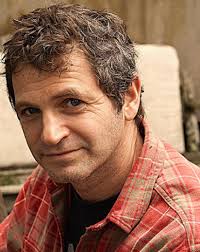
Before I say a reluctant goodbye to Peter Orner’s book, Am I Alone Here?, that has been such good company these past three days, I thought I’d share a few final quotes I marked in the book.
Six are from Orner himself, and three are ones he fished from Frank O’Connor’s book, The Lonely Voice (and boy, the writer’s voice is a lonely one, all right — especially if readers won’t buy and read his book).
“For a long time I thought reading would somehow make me a better writer. So I’d read in order to write. I’d justify the hours I spent with my feet up and call reading “my work.” Now I see how ludicrous this is. All the Chekhov in thirteen volumes won’t help me write a sentence that breathes. That comes from somewhere else, somewhere out in the world, where mothers die in car accidents accidents and daughters hide in pain. And yet I have come to the conclusion that reading keeps me alive, period. I wake to read and sleep so I can get up in the morning and read some more.”
“One thing I’m sure of, though, is that I’m drawn to certain stories because of their defiant refusal to do what I just tried to do, that is, explain themselves. Fiction isn’t machinery, it’s alchemy. Anybody who claims to shed complete light on the mechanisms by which fiction operates is peddling snake oil. A piece of fiction can have all the so-called essential elements, setting, character, plot, tension, conflict, and still be dead on the page that no amount of resuscitation would ever do any good.”
“Tolstoy, who (generally) adored Chekhov, once inferred that he might have been an even better writer if he had not been so dedicated a doctor. With all respect, Count, that’s bullshit. Chekhov’s being a doctor may well have been the key to how well he understood the connection between our ailing bodies and our ailing minds. To concern yourself with the hidden lives of others, including the long dead, especially at a time when you are trying to endure your own pain—is there a more generous act in life, in literature?”
“Stories fail if you read them only once. You’ve got to meet a story again and again, in different moods, in different eras of your life.”
“I once read that a reader is a person who lacks a critic’s complacency. I’ve always strived to be an uncomplacent reader, to retain a sense of wonder, even for stories I’ve read a dozen times. Sometimes I read a story and I think about it for hours, days, or, if I’m lucky, years. The thinking is the thing. The most I can give back to any story is a silence born of awe. But there are times, like these, when you want to say something, anything, if only to yourself and the wind in the trees.”
“It gets me every time. The way a story about characters, nonexistent people, pushes us back to our own, the people who do exist, who do walk the earth.”
And three quotes Peter Orner shares from Frank O’Connor’s book, The Lonely Voice: A Study of the Short Story:
“For the short-story writer there is no such thing as essential form. Because his frame of reference can never be the totality of a human life, he must be forever selecting the point at which he can approach it, and each selection he makes contains the possibility of a new form as well as the possibility of a complete fiasco.”
“The saddest thing about the short story is the eagerness with which those who write it best try to escape it.”
“There is in the short story at its most characteristic something we do not find in the novel—an intense awareness of human loneliness.”